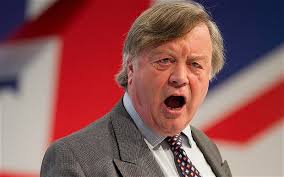All is not what it seems however and delving in a little further shows that far from ignorance both authors of the piece Thomas Aeschi and Guthlaugur Thor Thordarson must be fully aware of the differences between EFTA and the EEA.
In the picture above second from the left sits Gudlaugur Thor Thordarson, as the EEA JPC ( Joint Parliamentary Committee) President. With him are Nora Skaansar, EFTA Secretariat to his right, Pat the Cope Gallagher, EEA JPC Vice President and Tarvo Kungla, European Parliament to his left. It's safe to say that Gudlaugur Thor Thordarson is in the thick of the EFTA/EEA action as it were.
We can see further confirmation of this from his profile on Althing, the Icelandic Parliament's website which lists the committees that he is a member of:
Present committeesThus it's utterly inconceivable that he would not know that access to the EU market is via EEA agreements (or bilateral treaties) not by EFTA membership alone.
- Member of the Icelandic Delegation to the EFTA and EEA Parliamentary Committees since 2013 (Chairman since 2013) and 2003-2007 (Chairman 2005-2007).
- Member of the EU-Iceland joint Parliamentary Committee since 2013 (Chairman since 2013)
The second author of the piece is Thomas Aeschi of Swiss People's Party. A member of the EFTA Parliamentary Committe and as part of EFTA/ EU Parliaments delegation he is invited as observer to the EEA Joint Parliamentary meetings" (click to enlarge):
Not participants but observers. EFTA's impotence in EU trade relations made clear. In February of this year David Campbell Bannerman MEP hosted a conference on ‘Alternatives to EU membership, where Thomas Aeschi was a speaker (my emphasis):
Ruth Lea, representing Economists for Britain, Heming Olaussen who led the anti-membership campaign in Norway in 1994, Thomas Aeschi of the Swiss People’s Party, and Bill Cash MP all said that the European Economic Area (EEA) is not a good option (democracy by fax, against national sovereignty and so on).
Clearly then Aeschi knows EEA and EFTA are not the same. A point emphasised further when he argues, in this speech below, that he is not particularly fond of the Swiss bilateral treaties:
Revealing at the end of his speech (14mins 10), Aeschi puts forward his preference for a UK exit - "EEA lite" or "EFTA plus". This is also the preferred option for David Campbell Bannerman, and it is a deeply flawed and unworkable option that Scribblings from Seaham (under his old guise of WfW) took apart last year.
It's understandable to be cynical as to the intentions of this article as Douglas Carter was in a comment on my previous piece. It's apparent that the misleading conflation of EFTA and EEA is very likely not to have been born of ignorance but a less than candid attempt at promoting a free-trade agreement for the UK.
Interestingly Daniel Hannan who has long advocated a position similar, tweeted this:
It's also worth noting that Guthlaugur Thor Thordarson is a member of the Alliance of European Conservatives and
Reformists (AECR), who argue that the UK should seek a trade-only deal
outside of the EU, which could provide the foundations for a greater
economic union. And via AECR's official twitter account we see this:Interestingly Daniel Hannan who has long advocated a position similar, tweeted this:
And the secretary-general of AECR is...Daniel Hannan.
We guess international interventions in our referendum are going to be inevitable,and at least with the EU we can see the enemy coming. However with friends like this who confuse the issues and propose unworkable solutions...we will lose the referendum.











